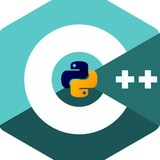Brian workshop, 9 Sep, 16-19 Iran time.
The material will be uploaded here.
To install the required package look here.
Please fill the google form for the registration (free of charge).
(Register)
The language of workshop will be in Farsi (Excuseme nonpersian members).
(Add to google calendar)
The material will be uploaded here.
To install the required package look here.
Please fill the google form for the registration (free of charge).
(Register)
The language of workshop will be in Farsi (Excuseme nonpersian members).
(Add to google calendar)
Google Docs
Brian workshop
Event Timing: 9 September, 15-18 Iran time
How to install and run Brian and Jupyter with Anaconda
To install using pip:
$ pip3 install brian2 jupyterlab
To install using pip:
$ pip3 install brian2 jupyterlab
YouTube
How to install and run Brian and Jupyter with Anaconda
In this short video, we show you how to download, install and run Python, Brian and the Jupyter notebook using the Anaconda Python distribution. In a future video, we will show you how to run Brian in the cloud without installing Brian locally.
Download…
Download…
🍀 Sept 2020 / Python for Scientist
This is a medium-advanced course in Python tools such as NumPy, SciPy, Matplotlib, and Pandas. It is suitable for people who have a basic understanding of basic Python and want to know some internals and important libraries for science.
https://scicomp.aalto.fi/training/scip/python-for-scicomp/
This is a medium-advanced course in Python tools such as NumPy, SciPy, Matplotlib, and Pandas. It is suitable for people who have a basic understanding of basic Python and want to know some internals and important libraries for science.
https://scicomp.aalto.fi/training/scip/python-for-scicomp/
🔆 Scientific Programming with Python and Software Engineering Best Practices
🌱 Advanced Numpy
🌱 Introduction to predictive analytics with Pandas and Scikit Learn
🌱 Testing, debugging, profiling
🌱 Packaging and continuous integration
https://telecom-python.telenczuk.pl/materials
🌱 Advanced Numpy
🌱 Introduction to predictive analytics with Pandas and Scikit Learn
🌱 Testing, debugging, profiling
🌱 Packaging and continuous integration
https://telecom-python.telenczuk.pl/materials
Scientific Programming
Brian workshop, 9 Sep, 16-19 Iran time. The material will be uploaded here. To install the required package look here. Please fill the google form for the registration (free of charge). (Register) The language of workshop will be in Farsi (Excuseme nonpersian…
YouTube
Brian Workshop intro [Farsi]
https://github.com/Ziaeemehr/workshop_brian/tree/master/workshop_09_2020/INTRO
🍀 The Algorithms - Python
A beautiful and well-maintained repository of some classic and well-known algorithms from many different domains. This resource can help you understand how to implement algorithms while practicing programming using Python.
https://github.com/TheAlgorithms/Python
@omarsar0
A beautiful and well-maintained repository of some classic and well-known algorithms from many different domains. This resource can help you understand how to implement algorithms while practicing programming using Python.
https://github.com/TheAlgorithms/Python
@omarsar0
Information theory and self-organisation -- a course on theory and empiricial analysis using the JIDT software
This playlist presents video lectures from a course on using information theory for analysing complex systems, with particular focuses on:
1. Measures of information dynamics: how information is processed in complex systems, including measures of information storage and transfer;
2. Empirical data analysis using the JIDT open-source software - https://github.com/jlizier/jidt
Full course overview, slides and activities will be available from the JIDT wiki at
https://github.com/jlizier/jidt/wiki/Course
This playlist presents video lectures from a course on using information theory for analysing complex systems, with particular focuses on:
1. Measures of information dynamics: how information is processed in complex systems, including measures of information storage and transfer;
2. Empirical data analysis using the JIDT open-source software - https://github.com/jlizier/jidt
Full course overview, slides and activities will be available from the JIDT wiki at
https://github.com/jlizier/jidt/wiki/Course
YouTube
Information theory and self-organisation -- a course on theory and empiricial analysis using the JIDT software
This playlist presents video lectures from a course on using information theory for analysing complex systems, with particular focuses on: 1. Measures of inf...
A curated list of awesome machine learning frameworks, libraries and software (by language)
https://github.com/josephmisiti/awesome-machine-learning
https://github.com/josephmisiti/awesome-machine-learning
GitHub
GitHub - josephmisiti/awesome-machine-learning: A curated list of awesome Machine Learning frameworks, libraries and software.
A curated list of awesome Machine Learning frameworks, libraries and software. - josephmisiti/awesome-machine-learning
https://braincriticality.org/
Brain Criticality Virtual Conference 2020 6-8 Oct
Brain Criticality Virtual Conference 2020 6-8 Oct
BrainCriticality.org
This meeting intends to gather recent contributions in the field of systems neuroscience, with the purpose of further discussing the role of criticality and its implications in the dynamics of large neuronal populations, functional and structural connectivity…
Every data scientist should know
#mysql by Mosh
To get the files and databases for this course look at here
Youtube
#mysql by Mosh
To get the files and databases for this course look at here
Youtube
Codewithmosh
5- Creating the Databases
Everything you need to design and query databases in one course
In a scientific project, there is always a high chance of encountering logical errors that are emerging from dimensions and units. These types of errors are very hard to detect. Hopefully, C++ and other strongly-typed languages help us to avoid such logical errors. One way is to attach units to values to avoid meaningless computation and detect unit-related errors.
For example, it is meaningless to pass a dimensional quantity to a cosine or exponential function. In the same way, it does not make sense to assign a mass to a quantity with a velocity dimension. The STUDIS library is designed to catch such errors at compile-time.
Here is the link to the library:
https://github.com/DiscreteLogarithm/studis
Link to post
For example, it is meaningless to pass a dimensional quantity to a cosine or exponential function. In the same way, it does not make sense to assign a mass to a quantity with a velocity dimension. The STUDIS library is designed to catch such errors at compile-time.
Here is the link to the library:
https://github.com/DiscreteLogarithm/studis
Link to post
high quality.mp4
16.7 MB
High quality video of above post.
Mouse brain imaging.
Mouse brain imaging.
